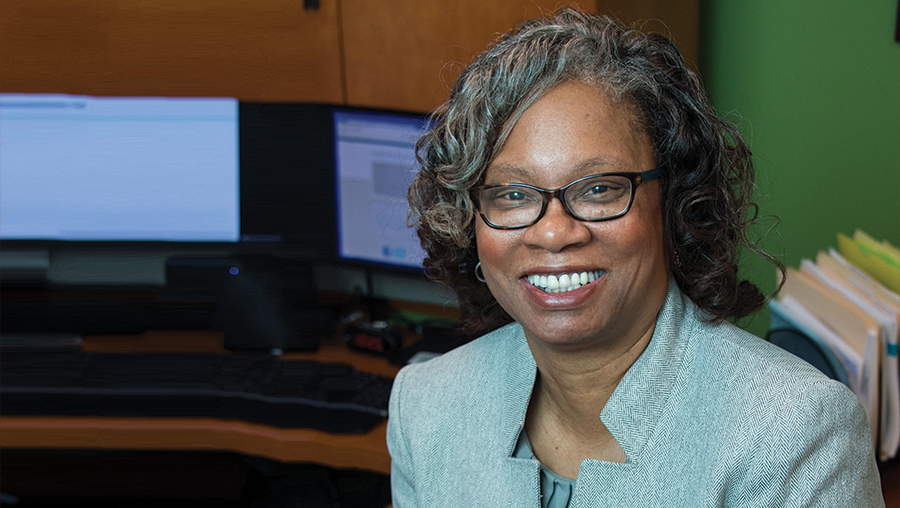Say “Ahhh”
Haunted by the needless death of a local child, a Georgetown researcher is taking on oral health disparities in Washington, D.C., aided by a $1.2 million grant from the George E. Richmond Foundation of Chicago.
After learning that the foundation was interested in oral health, Lucile Adams-Campbell, associate dean of community health and outreach and associate director of minority health and health disparities research at Georgetown Lombardi Comprehensive Cancer Center, created a plan to address the issue from the disparities perspective.
Adams-Campbell recalls the story of a 12-year-old African-American boy who came home from school one day complaining about a headache caused by an infected tooth. Less than two months later, the child died from complications related to the infection. “No one should die because of lack of access to or knowledge about oral health and dental care,” Adams-Campbell says.
Disparity in health care for minorities is a recognized issue, particularly in urban areas. But few realize that disparities in dental care represent a crisis in the nation’s capital.
As part of Georgetown’s Health Disparities Initiative, Adams-Campbell’s team will undertake research and community outreach projects led by the Office of Minority Health & Health Disparities Research. The goal of the project is to conduct a community-based assessment of oral health needs, barriers, knowledge, attitudes, and behaviors in D.C.’s medically and dentally underserved areas.
“Oral health is so important because it impacts systemic health,” Adams-Campbell says. “Poor oral health conditions have been linked to cancer, diabetes, stroke, cardio-vascular diseases, and poor nutrition which are strongly associated with many health disparities seen in D.C.”
Adams-Campbell’s innovative work will directly engage affected communities, offering a manual of dental and oral care providers, clinics, and resources for the underserved along with dental health screenings and referrals. It will establish community research pilot programs, including an oral biorepository from saliva samples, presenting opportunities for future research for both diagnostic and preventive purposes.

